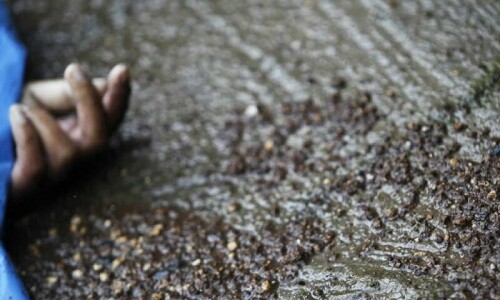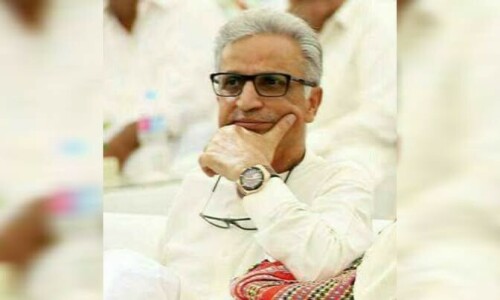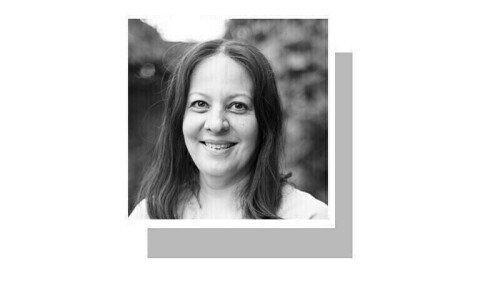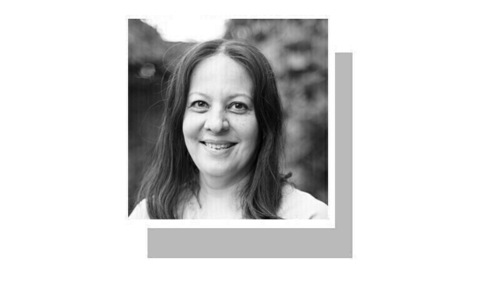Unemployed but married and having two kids, Mr Wahab passed his matriculation some six years back. Since the area where he lives has no college, he has been doing odd jobs mainly to support his aged father and to make both ends meet.
However, he hopes to get a white-collar job once he completes a government sponsored three-month training in electronics at Skill Development Centre Kuza Banda, district Battagram.
“We have been told that the government will need technicians in Allai Khuar Hydropower Project, so I availed the opportunity that rarely comes in these mountains,” an upbeat Wahab told Dawn, while fixing a power circuit at the training facility.
This training is funded by Khyber Pakhtunkhwa government under Bacha Khan Poverty Alleviation Programme (BKPAP), an initiative launched to curb poverty in four poorest districts of the province.
The federal government has been initiating programmes to address the poverty issue from time to time. However, the BKPAP with an allocation of one billion rupees is perhaps the first provincial intervention.
Named after Khudai-e-Khidmatgar movement leader, Bacha Khan, the BKPAP is run on a model different from the way the provincial administration works. The money for the project is paid from provincial exchequer, but Sarhad Rural Support Programme (SRSP), a non-profit organisation, manages it.
The BKPAP's model consists of a variety of interventions ranging from natural resource management to community mobilisation to tackle the poverty issue.
While the programme is part of the Annual Development Programme (ADP), it was formally launched in January this year in 40 union councils of Battagram, Dir (Upper), Karak and Mardan districts.
The project started with a poverty scorecard compilation in the target areas, identifying the vulnerability and the exact incidence of poverty at household level. Each household from point zero to 11 is considered extremely poor, from 12 to 18 chronically poor and from 19 to 23 poor. Households from 24 to 100 are considered as non-poor because they have sufficient resources and access to better services.
According to the BKPAP statistics, around 44 per cent of the population in four selected districts fall into the categories of extreme, chronic and poor and interventions have been accordingly designed for them.
The main focus of these interventions is on strengthening livelihood, social protection and development through social mobilisation, as these are the community organisations that decide every thing, right from planning to execution of schemes.
Under the livelihood component, the focus is on natural resource management.The field officials in collaboration with district functionaries responsible for agriculture and livestock development work together to enhance productivity of subsistence farms.
Apart from informing farmers about different seeds and best practices, development of demo plots is also part of this component. For example; growers in the Battagram district are encouraged to grow vegetables, apples and walnuts because its soil and climate is ideal. Same goes with Dir (upper), where the farmers are taught know-how about orchid management.
Nisar Muhammad, a 35 year old, used to grow wheat and maize on his five-kanal land in Tikiry village of Battagram. However, because of the BKPAP he has started growing vegetables that will give him at least three cash crops.
Skill development programmes of which Mr Wahab is one of the beneficiaries, is also an important component of the BKPAP, wherein focus is on youth and women. Training in different trades such as electrician, heavy machinery driving, welding, food processing, mobile repairing, embroidery, tailoring are part of this initiative. The BKPAP model has two other important features--Community Investment Fund (CIF) and Micro Insurance of the household.
Under the CIF, the target households, identified by the community, are given cash grants and soft loans to help increase their incomes. This scheme envisages Rs5000 non-refundable grant and interest-free loans of Rs10000 -15000. Disbursement and recovery of such loans is done by the community organisations.
Such grants and soft loans are given to women members of the community organisations to bring about cultural changes. For example, in Battagram, women were not allowed to get their national identity cards. However, according to Nisar Khan, the District Programme Manager BKPAP, women are now making cards with pictures placed on them.
Under the Micro Insurance scheme, members of the target household are to be provided health insurance facility up to Rs25,000 for which a premium of Rs300 is to be paid. The BKPAP will pay the first premium on behalf of the insured household. This facility will allow the insured family members to get medical treatment in case of emergency up to the limit of Rs25,000.
Rahimdad Khan, Senior Minister Planning and Development, told Dawn that the provincial government is planning to extend this programme to other districts for which over Rs4 billion would be set aside in the next ADP.











































